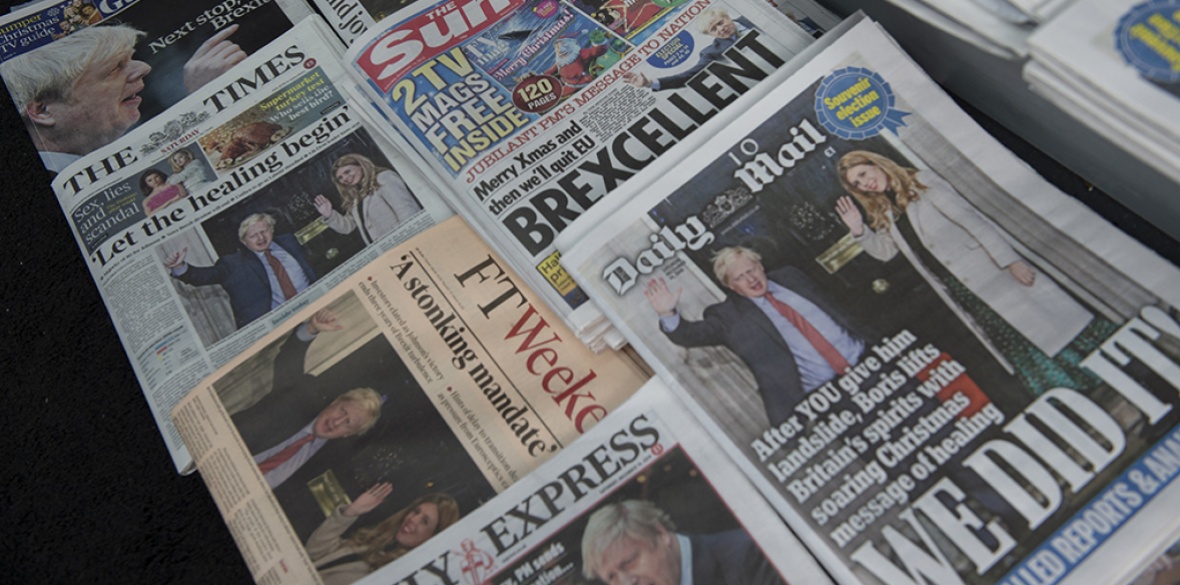THIS week’s launch of the Fix the Media pamphlet by the Campaign for Press and Broadcasting Freedom North revives an important debate.
It should prompt discussion on how we challenge the barrage of Establishment propaganda that too often passes for news and analysis from Britain’s main newspapers and broadcasters.
The political role the mass media plays became evident to hundreds of thousands of socialists over the last five years, as it mobilised a sustained campaign to undermine Jeremy Corbyn and ensure a government committed to serious reform was not elected.
The concerted attacks on Corbyn and his followers across both conservative and liberal media demonstrated that the press acted not as a “watchdog” but as an “attack dog,” unleashed to savage any challenge to the status quo, as a 2016 study by the London School of Economics phrased it.
Following the exposure of the cynicism and dishonesty of major media outlets by the phone-hacking scandal, their extremely partisan behaviour has led to a collapse in trust that may be just as responsible as technological developments for the decline in newspaper sales.
For most liberal analysts this loss of trust is prompted by the spread of “fake news,” generally associated with the potential for bizarre or unsubstantiated claims to get an audience over the internet.
This in turn leads to behavioural consequences, such as the prominence of “anti-vaxxer” conspiracy theories that lead people to declare they will not take any vaccine developed for Covid-19, thus undermining the effectiveness of public health policy.
The BBC’s outgoing director-general Tony Hall opened the Edinburgh television festival pitting the public broadcaster against “forces of disinformation and social media [that] tend to feed on fracture and drive polarisation” and arguing that it protected “integrity in news” against a “pandemic of misinformation.”
Yet the BBC played just as partisan a role as the privately owned media during the Corbyn period. And the “official” media — the big broadcasters and papers — routinely promote misleading and evidence-free narratives on topics from immigration to the welfare state, or the politics of “enemy” countries like Venezuela or China.
As for conspiracy theories, an entire cottage industry has been built up around claims of Russian interference in British and US elections and referendums without any evidence being presented at all — and these fantasies have been indulged more by the liberal than the conservative press.
Socialists are faced with a dilemma. “Fake news” is not the preserve of online kooks. The traditional media is full of it.
At the same time, the online spread of various counter-narratives to that of the Establishment as referred to by Hall, many of them reactionary and anti-social, is real.
The left must do better than the liberal response to these, which is largely regulatory and consists of calls for corporations like Facebook to police content more heavily.
There is a very obvious risk that such tactics will backfire on the left and lead to the suppression of alternative and independent media whenever it strays beyond the “Overton window” of acceptable political discourse as defined by our class enemies.
Rather we should recognise that collapsing trust in official media is both rational, given its record, and inseparable from the loss of popular legitimacy by other Establishment institutions such as Parliament, the police, the banks and so on.
Though one outcome of that process can be individuals turning to “conspiracy theories” that can do a lot of harm, the answer is not to mount an unconvincing defence of the status quo but to analyse the causes of widespread alienation and to argue forcefully for systematic change.
In the case of the media, that means building up our alternative — outlets owned and controlled by our class, like the readers’ co-op that is the Morning Star, rather than relying on state or corporate regulation of what opinions and “facts” are or are not acceptable.











